Consequent to political events, climate change, and emerging technologies the recent years have witnessed major developments and challenges in the field of energy. To deal satisfactorily with these challenges and move closer to the achievements of the universally accepted Sustainable Development Goals (SDGs) requires close collaboration of scientists, engineers, and policy makers at national and international levels.
18-21 April, 2024
We, the participants of ICERS2024, thank the Islamic Republic of Iran and the Sharif University of Technology (SUT) for convening the International Conference on Energy Resilience and Sustainability (ICERS2024) at this very important time.
This conference addresses one of humanity’s most pressing problems as energy is crucial in achieving all goals formulated in the Sustainable Development Goals (SDGs) as resolved by the Member States at the UN General Assembly in 2015.
This conference addresses all important aspects of energy challenges in seven-panel sessions (Energy Policy and Planning, Energy Governance and Management, Energy Security, Energy Financing and Investment, Energy and Environment, Emerging Technologies and Industries, and Energy Resources.
Brief individual reports of these sessions are attached as annexes to this Statement. The panel sessions were followed by workshops/TED talks presented by experts, scientific paper presentations in oral and posters, and technical exhibitions.
This all-compassing approach enabled us participants to review the challenges of different resilience aspects of energy generation, energy transition, and energy use.
While the reports of the individual panel sessions reveal the richness of the issues addressed in this Statement, we refer to the issues of energy efficiency and public awareness raising among the most essential elements in addressing the challenges of the present energy use and its transition toward more sustainable renewable energy generation and utilization.
With this conference, the first step has been made to attract the attention of the scientific community, educators, government agencies, private sectors, international organizations economic actors, and all affected stakeholders in a dialogue that needs to accompany the transition period ahead of us.
We recommend that the spirit and dedication of ICERS2024 are carried forward providing for a framework of further encounters and strengthening a multi-stakeholder process inherent in the transitional process ahead of us.
In particular, we recommend to establish a permanent secretariat at SUT to serve as a clearing house and support organizers of biannual conferences on energy issues related to the transition towards more sustainable renewable energy-based systems.
The center can collaborate with regional/international organizations such as ECO Science Foundation (ECOSF) as well as COMSTECH to focus on the relevant issues at the regional level.
We consider that the energy transition is not only a technical and administrative task in the broadest international context but has its cultural and educational dimensions, it is recommended to initiate the establishment of a respective UNESCO chair at SUT.
The United Nations University (UNU), a think tank of the UN system, is eminently placed to serve the purpose of intellectual considerations and links between climate change and energy and support the realization of COPs deliberations and our efforts toward sustainable energy generation and utilizations, therefore we request the Government of the Islamic Republic of Iran entering a dialogue with the UNU about the establishment of a UNU institute hosted by SUT providing research, education, and scientific platform for inter-and transdisciplinary efforts towards addressing the entire scope of energy and energy transition questions.
Delving into the intricate dynamics of energy policy, security, technologies, and resources, this conference will equip participants with the knowledge and tools to navigate the ever-evolving energy landscape.
Energy policy refers to a set of principles and regulations implemented by governments, private enterprises, international organizations and regional authorities within a country to guide the management, production, distribution, exportation, and consumption of energy resources. The primary goal of energy policy is often to ensure a reliable, affordable, and sustainable supply of energy while addressing environmental concerns. The key aspects of energy policy include;
Energy plays a significant role in economic development, as well as in individual welfare. Instability in energy prices and supplies can result in increased costs and disruptions to the supply chain. In contrast, energy consumption can result in environmental externalities, which may be detrimental to ecological conditions. As a result, the issue of energy is multifaceted. The concept of ES was proposed by APERC (2007) in order to achieve a generalization in our understanding of the energy domain: Energy Security is defined as “the ability of an economy to guarantee the availability of the supply of energy resources in a sustainable and timely manner with the energy price being at a level that will not adversely affect the economic performance of the economy”.
A variety of perspectives can be taken into account when considering ES. An energy system’s health on the supply side is considered by the first group of aspects.
Energy resiliency involves the next generation of the electrical grid (smart grid), with a purpose to allow integration of conventional, renewable, distributed power generation, energy storage and distributed storage, transmission and distribution, intelligent approaches for smart grid, management by computational intelligence technologies for sustainable energy, machine learning, IoT, big data applications and demand management.
Renewable energy is essential in transitioning to a less carbon-intensive economy and a more sustainable energy system. The high penetration and uncertain power outputs of renewable energy creates a great challenge to the stable operation of energy systems. The spread of the smart grid is extensive and also crucial around the world. It involves and deals with multidisciplinary fields such as energy sources, control systems, cyber and physical security, communications, computation, generation, transmission, distribution, customer, operations, markets, and service provider.
Depletion of fossil fuels and the environmental impact of using fossil fuels is one of the main challenges of current energy systems. Renewable energy resources can replace the fossil fuel consumption and increase the sustainability of our energy system. Although, renewable energy sources are free and abundant, there are several challenges that should be addressed. First, the initial investment cost of infrastructures for renewable energy is higher than conventional fossil fuel facilities. This is especially an issue for countries like Iran that subsidies the fossil fuels. The second challenge is the intermittency and alternating behavior of renewable energy resources which make them hard to match with demand profiles and the third one is the lack of public knowledge of how to integrate renewable energy technologies to fulfill their energy needs.
Energy sector resilience in many countries, cities, utilities, and other energy sector stakeholders are under planning by undertaking vulnerability assessments and developing resilience action plans. Executing these plans requires identifying and increasing financing for power sector resilience interventions. These investments surpass the basic needs for power generation to support a more secure, reliable, and resilient power system in the face of threats.
Resilience finance mechanisms can be established products and tools or innovative financial instruments. Established financing mechanisms, such as bonds, grants and loans will be used for infrastructure investment by adding additional resilience value to the project. Innovative financial products, which include resilience bonds and green banks, are definitely designed to achieve resilience benefits, but they are still at the beginning steps.
Energy is both an enabler and a challenge for sustainable development. It powers our economies, fuels agriculture to feed billions of families, and provides access to education and healthcare. However, the production and consumption of energy also contribute to climate change, air pollution, and other environmental and social problems. Therefore, energy governance and management are essential to ensure that energy is produced, distributed, and consumed in a sustainable and equitable way. Energy governance refers to the rules, institutions, and processes that shape energy policies and decisions at the local, national, and global levels. Energy management, on the other hand, focuses on the planning, operation, and optimization of energy systems and processes within organizations, such as companies, municipalities, and universities.
Increasing energy demand associated with the human development and industrialization lead to tremendous usage of fossil energies. This caused critical challenges to the environment such as climate change, availability of resources, waste disposal, air pollution, etc. The evidences of them are approved in many international agencies, events, and reports like IPCC, United Nations. Thus, the sustainable design of energy systems becomes an important issue in all countries. Their cover becomes the topics of politicians, policy-makers, scientists, and experts in academics, industry, and society. This may threaten the future development of countries and may provide some opportunities for them in case of careful consideration. This needs the cooperation between countries in the air pollution, water resources, embedded carbon, etc. Some challenges are not only restricted to the consumers of energy and even the exported energy countries must be involved and take serious actions for future developments. In this context, this event is held to present the recent novel ideas in the science and technology and provide a framework to discuss these issues for the academics and society.
Below is the list of our amazing speakers. The conference schedule is available below.

10:00 – 12:00
Energy Policy and Planning
Panel Coordinator: Prof. Janos Bogardi
Panelists:
(Each 10 min. intervention + Discussion & FAQ)
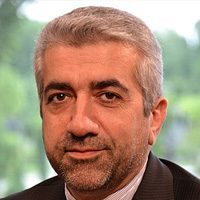
13:30 – 15:30
Energy Governance and Management
Panel Coordinator: Prof. Reza Ardakanian
Panelists:
(Each 10 min. intervention + Discussion & FAQ)

16:00 – 18:00
Energy Security
Panel Coordinator: Dr. Seyed Komail Tayebi
Panelists:
(Each 10 min. intervention + Discussion & FAQ)
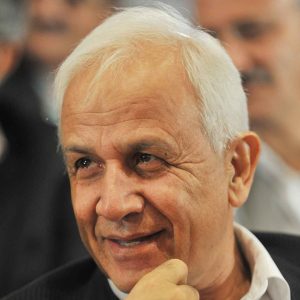
8:20 – 10:00
Energy Financing and Investment
Panel Coordinator: Prof. Alinaghi Mashayekhi
Panelists:
(Each 10 min. intervention + Discussion & FAQ)
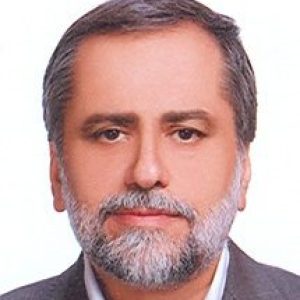
10:30 – 12:30
Energy and Environment
Panel Coordinator: Prof. Madjid Abbaspour
Panelists:
(Each 10 min. intervention + Discussion & FAQ)

16:00 – 18:00
Energy Security
Panel Coordinator: Dr. Seyed Komail Tayebi
Panelists:
(Each 10 min. intervention + Discussion & FAQ)

16:30 – 18:30
Energy Resources
Panel Coordinator: Professor Brian Norton
Panelists:
(Each 10 min. intervention + Discussion & FAQ)

8:30 – 9:30
Title: The Concept of Sustainable Development: a Critical Analysis
Presenter: Prof. Janos Bogardi
Goals: The proposed TED talk, while acknowledging the importance of guiding development according to the principles of sustainability, would highlight some related problems and make the practical implementation of the concept of sustainability difficult. Some proposals which may facilitate the practical realization of the principle of sustainability will be made.
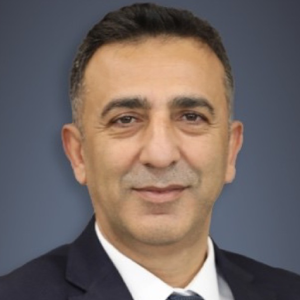
9:30 – 10:10
Title: Role of Policymaking in Accelerating the Energy Transition
Presenter: Prof. Halil Hasar
Goals: To provide the audience and attendees with insights into the role of policymaking in the energy transition with its limitations and potential to accelerate the transition.

10:30 – 11:30
Title: Cooperation and Transformative Governance of Energy Resilience and Sustainability
Presenter: Prof. Nadejda Komendantova
Goals: To provide the audience with insights from various projects and good practices on energy resilience and sustainability, focusing on cooperation and transformative governance including cooperation models, decision support systems, and good practices from various countries and regions.

11:30 – 12:00
Title: Energy Security in the ECO Region: Assessing Resilience and Sustainability
Presenter: Prof. Seyed Komail Tayebi
The following points will be covered in the talk:

13:30 – 15:20
Title: Climate Change and Carbon Management Instruments (a Global Analytical Assessment of the Current and Future Trends)
Presenter: Prof. Bahram Taheri
The Workshop will touch upon:
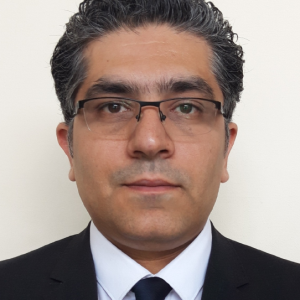
15:20 – 16:00
Title: Dynamic Analysis and Design Assessment of Offshore Renewable Energy Systems
Presenter: Prof. Madjid Karimirad (online)
Goals: Understanding the challenges and opportunities in offshore renewable; Being familiar with the importance of dynamic analysis in the proper design of offshore wind, floating solar, wave energy, and hybrid marine platforms

16:20 – 17:00
Title: Power Electronics as the Enabling Technology for a Modern Carbon-Neutral Society
Presenter: Prof. Saad Mekhilef
Goals: The objectives of power electronics as an enabling technology for a modern carbon-neutral society revolve around improving energy efficiency, integrating renewable energy, supporting electrified transportation, enabling smart grids, facilitating energy storage, promoting demand response, and enhancing the electrification of various industrial processes. These objectives collectively contribute to building a sustainable and environmentally friendly energy ecosystem.

17:00 – 19:00
Title: Decarbonisation of buildings
Presenter: Prof. Brian Norton
Goals: To provide an understanding of the challenges and constraints of reducing the operational and embodied greenhouse gas emissions and energy, particularly in existing buildings while maintaining the health and amenity of the building for its occupants.
7:30 – 8:30
8:20 – 8:40
Title: Energy Policy in Iran: The proper path to the clean energies
Presenter: Prof. Abbas Maleki
8:40 – 9:00
Title: Russia’s Cyber Security Policy for Atomic Energy Sector
Presenter: Prof. Radomir Bolgov
9:00 – 9:20
Title: Energy Conservation and Sustainability Methodology to predict the alternative future Iranian Energy
Presenter: Prof. Hassan Badkoobehi
9:20 – 9:40
Title: Greenhouse gas inventories on disturbed peatlands as part of the Carbon Supersite Programme in the Russian sector of the Baltic Region
Presenter: Prof. Maxim Napreenko
Dr. Leyla Bashirova
9:40 – 10:00
Title: The Main Research Directions of the Consortium “Global Earth Changes: Climate, Ecology, and Quality of Life”
Presenter: Prof. Victor Dyomin
8:20 – 8:40
Title: Specialists Training 4.0 for Sustainable Development Goals
Presenter: Prof. Svetlana Kuzmina
8:40 – 9:00
Title: Developing a PESTLE based model for the Factors that Drive Implementation of Synergistic Energy Solutions in the Middle East
Presenter: Maryam A. Borojerdi
9:00 – 9:20
Title: Leveraging Natural Gas for Enhanced Energy Security: A Comprehensive Analysis of Iran’s Role in the Global Energy Landscape
Presenter: Parinaz Soleimani
9:20 – 9:40
Title: Integrated Resource Management in the Wake of Climate Change: A Nexus Approach for Water, Food, and Energy Security
Presenter: Hamidreza Esmaeilinejad
9:40 – 10:00
Title: Integrated Resource Management Under Climate Change: A Strategy Framework for an Arid Central Iranian Watershed
Presenter: AmirArdalan Amiri
16:00 – 16:20
10:20 – 10:40
Title: Presentation of Iran’s Proposed MRV Model Based on National Conditions and a Comparative Study of the World’s MRV Systems
Presenter: Dr. Dordaneh Aghajani
10:40 – 11:00
Title: Sequestered Carbon in the Above-Ground Phytomass of Forests Affected by Fires of Different Intensity
Presenter: Prof. Matveev Sergei
11:00 – 11:20
Title: Techno-Economic Feasibility of Underground Hydrogen Storage in Iran: A Path to Sustainable Energy Integration
Presenter: Prof. Shahab Ayatollahi
11:20 – 11:40
Title: Techno-Economical Evaluation of Hydrogen-fueled Gas Turbines for Electricity Generation in Iran
Presenter: Dr. Hossein Khajehpour
11:40 – 12:00
Title: Efficiency of geothermal energy as a renewable energy source: Energy performance of energy pile and energy diaphragm wall
Presenter: Prof. Mohammad Mahdi Ahmadi
10:20 – 10:40
Title: Corporate Social Responsibility in the Energy Management and Sustainability
Presenter: Dr. Sadaf Estanesti
10:40 – 11:00
Title: Strategic Decision-Making for Petrochemical Plants: Evaluating and Selecting Optimal Hybrid Renewable Energy Systems Through Sustainability and Resiliency Criteria
Presenter: Samaneh Habibzadehi
11:00 – 11:20
Title: Digital Transformation of Oil and Gas Companies: Energy Transition and Hydrocarbon Reduction
Presenter: Ali Dehghanchaharabi
11:20 – 11:40
Title: The Role of Energy Governance in the National Security of Oil-Producing Countries
Presenter: Dr. Reyhaneh Loni
11:40 – 12:00
Title: Developing Energy Hub as a Key to Improve Energy Governance
Presenter: Dr. Reyhaneh Loni
12:00 – 13:30
13:30 – 13:50
Title: Introducing a Novel Method to Produce Energy from Marine Turbines Installed on the Persian Gulf Bridge
Presenter: Dr. Reyhaneh Loni
13:50 – 14:10
Title: Fault Diagnosis of Power Grid Equipment Based on Artificial Intelligence with Limited Data
Presenter: Prof. Svetlana Petrova
14:10 – 14:30
Title: Autonomous Hybrid Power Plants Based on Renewable Energy Sources for Off-Grid Rural Electrification
Presenter: Prof. Georgii A. Konoplev
14:30 – 14:50
Title: A Review of Vehicle-to-Grid (V2G) Technology as a Solution to Increasing Renewable Integration and Electrification
Presenter: Prof. Mohamad Taghi Ahmadian
14:50 – 15:10
Title: Autonomous Solar Measurement System for Sustainable Solar Energy
Presenter: Prof. Fedor A. Gubarev
15:10 – 15:30
Title: An Efficient Solar Desalination System for Oil Fields, Increasing the Water Output by Modifying the Condensing Glass Surface
Presenter: Prof. Shahab Ayatollahi
15:30 – 15:50
Title: Modeling and economic and environmental improvement of the simultaneous production of electricity and heat from photovoltaic panels
Presenter: Dr. Ebrahim Gogonani
13:30 – 13:50
Title: Evaluation of capital supply in the electricity industry: comparing the two methods of mutual sale and guaranteed purchase
Presenter: Mousa Mehdikarami
13:50 – 14:10
Title: Economic Study of the Idea of Selling the Capacity Certificate in Financing the Energy Sector
Presenter: Mousa Mehdikarami
14:10 – 14:30
Title: Determination of Thermal Properties of Soil in Solar Greenhouses
Presenter: Dr. Afdandil Vardiyashvili
14:30 – 14:50
Title: The Global Outlook of the Renewable Energy Resources from Oceans
Presenter: Dr. Shahnaz Bahmanyar
14:50 – 15:10
Title: Design Parameters Optimization of Micro-hydro Archimedean Screw for Sustainable Energy Generation
Presenter: Dr. Kazem Shahverdi
15:10 – 15:30
Title: Computational comparison among different biomass feedstocks
Presenter: Vanoosheh Ghazanfari Savadkoohi
15:30 – 15:50
Title: Optimizing Energy Efficiency in Building Sector through the Use of Solar Energy: Case Study of Daylight Control Systems
Presenter: Ali Kangazian
15:50 – 16:10
15:50 – 16:10
Title: Performance Evaluation of Hydrogen-Natural Gas Blends in Gas Turbines: a Case Study of the MAPNA MGT-75 Gas Turbine
Presenter: Dr. Ramin Haghighi Khoshkhoo
16:10 – 16:30
Title: Energy Supply of Natural Gas Liquefaction Process Using Renewable Energy Sources: Technical, Economic and Environmental Study
Presenter: Dr. Mehdi Sharifzade
16:10 – 16:30
Title: The Feasibility of Installing FPV on the Reservoirs of Dams in Hormozgan Province to Produce Energy and Reduce the Amount of Water Evaporation
Presenter: Majid Zarezadeh
16:30 – 16:50
Title: Simultaneous supply of energy and water by rainwater harvest from the roof the greenhouse structure with a solar panel
Presenter: Eng.Majid Zarezadeh
16:50 – 17:10
Title: Optimal Design of Renewable Energy Hybrid Systems Using MATLAB: A Comparative Analysis with PV Syst Software and Sensitivity Analysis
Presenter: Hassan Bazoubandi
17:10 – 17:30
Title: Study of Diesel Operation on Diesel and Bioethanol-Containing Fuel
Presenter: Dr. Sobir Utaev
You may find the latest NEWS related to the conference on our blog
International Conference on Energy Resiliency, and Sustainability – ICERS is hosted by Sharif University of Technology.

Sharif University of Technology (SUT) is a renowned public research university located in Tehran, Iran. Widely regarded as the country’s most prestigious institution for science, technology, engineering. and mathematics (STEM) fields, SUT has consistently ranked among the top universities in Asia and the Middle East.
our conference is sponsored by a majority of organizations. you may find their names below. you are welcome to become our sponsor and have extraordinary features.
Energy shifts driven by politics, climate change, and new technologies necessitate science-policy collaboration for sustainable development.
Copyright © 2024. All Right Reserved.